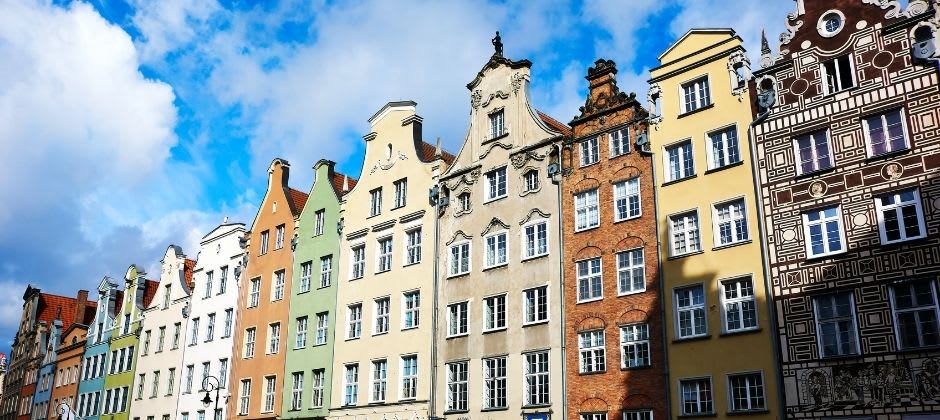Study in Poland: Education in Poland
Poland has a long and proud tradition of keeping educational institutions available for students even at difficult times. Have you ever heard about the Polish Flying University? In the late 1800s universities were heavily controlled and women were not allowed admission. Polish scholars began a brave underground movement in which courses were secretly taught.

Poland has a long and proud tradition of keeping educational institutions available for students even at difficult times. Have you ever heard about the Polish Flying University? In the late 1800s universities were heavily controlled and women were not allowed admission. Polish scholars began a brave underground movement in which courses were secretly taught.
To avoid authorities, these meetings were even held in private homes teaching everything from philosophy or mathematics to arts and science. In order to avoid a possible reveal, the meetings frequently moved from location to location around Warsaw, earning it the name Floating or Flying University. Marie Skłodowska Curie, the Nobel Prize laureate, is a famous graduate of the Flying University
Nowadays, the Polish education system follows the objectives of the Bologna process and offers public and private institutions and offers three types of degrees: Bachelor’s, Master’s, and PhD. The academic year runs from October to June divided into the winter and spring semesters and you can either choose to study full or part-time.
The higher education Polish grading system is based on a 5-scale as follows:
- 5: Very Good (bardzo dobry)
- 4+: Better than good (dobry)
- 4: Good (dobry)
- 3+: Better than satisfactory (Dostateczny)
- 3: Satisfactory (Dostateczny)
- 2: Unsatisfactory/Fail (Niedostateczny)
Bachelor Studies in Poland
After finishing the first-cycle Bachelor’s studies in Poland, you can get the professional title of a licencjat (earning a Bachelor’s of Arts) or inżynier (earning a Bachelor’s of engineering). This degree offering 180-240 ECTS credits lasts around three to four years and aims to prepare you for a future Master’s degree program. Courses are also focused in a way on preparing students for future employment.
Bachelor studies are offered in Polish and you will be asked to prove your linguistic competency in Polish. However, there are a lot of English-taught Bachelor’s opportunities in Poland as well. A TOEFL language test is therefore necessary to prove your English language proficiency and gain admission to the university of your choice.
What about Polish Master degrees?
A Master’s degree or magister program in Poland lasts around two years and awards 90-120 ECTS credits. After the completion of a Master’s degree you are eligible for PhD studies. The teaching methods of Master’s studies in Poland include a combination of group sessions, independent study, group and individual assignments and practical laboratory work, if enabled by the discipline. You can find a wide range of Master’s in Poland taught in English.
In order to complete your Master’s you will be asked to orally defend your written dissertation. There is another older type of Master’s offered in Poland, which is not oftenly met, the so-called ‘’long-cycle’’ Master degree. Want to know more about it? Continue reading below!
Long-cycle studies in the Polish education system
In Poland, there are particular fields of study that offer long-cycle programs. These include acting, arts, law, dentistry, medicine, photography and production, pharmacy, psychology and veterinary medicine. Programs in these academic fields can last up to six years with the completion of 270-360 ECTS credits that award a Master’s degree (magister).
Being enrolled in a long-cycle integrated program means that you will study both the basics of your field and also gain a specialization. As a result, it is like combining a Bachelor’s and Master’s degree together.
PhD degrees in Poland
A PhD or doktor in Poland normally lasts three to four years and your eligibility is based on the completion of a Master’s degree program. PhD degrees are offered by universities or research institutions like for example departments of the Polish Academy of Sciences.
Doctorate degrees in Poland are offered free of charge for all students! As a PhD researcher you will get a scholarship throughout your studies and get paid a normal salary. The amount depends on your evaluation, the institution and the study discipline.
In order to graduate with a PhD in Poland, you have to attend taught classes, undertake up to 60 hours of formal teaching usually for undergraduate students at your university, provide annual progress reports and successfully write and pass your dissertation project.
Learn more about education in Poland:
Study in Poland - Overview
Over 45,000 international students choose Poland as their study abroad destination every year. Click here to learn why.
Student Visas
Do you need a visa to enter Poland to study? Learn more about the student visa process, and what you need to enter the country, depending on your citizen status.
Housing & Living Costs
Housing and cost of living in Poland are relatively cheap, especially when compared with other countries in Europe
Tuition Fees & Scholarships
Tuition fees for degree programs in Poland vary but education for international students is still far lower than in many other European countries.
Language & Culture
Poland is a country rich in history and culture. Find out more about what the country offers in terms of language, culture, and more!
Application Process
Entry requirements in Poland vary from university to university. Here you can find more information about the application process for both EU and non-EU citizens.
Programs
Ready to look at education in Poland? Use our search engine to find and compare top programs in Poland today!

Author
The Keystone Team is comprised of experienced educators and advisors dedicated to providing valuable resources and advice to students all over the world.